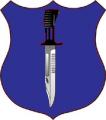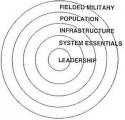CAMOS, the Committee for the Analysis of Military Operations and Strategy, invites proposals for papers or call for panel for the 2008 American Political Science Association Annual Meeting. The convention will meet in Boston, Massachusetts from August 28 until August 31, 2008.
As a cooperating organization with APSA, CAMOS is allotted one panel at the 2009 annual meeting.
Papers and panels that address key issues of strategy and military operations will be considered. Specific topics of interest include:
National security and defense policy-making
Strategy in the post-Cold War Era
Role of the military in post-conflict reconstruction and nation-building
Operations and strategy of preventive war and regime change
Determinants of military success and failure
Sources of military doctrines
The revolution in military affairs
Civil-military relations
Papers and panels that involve cross-case analysis (over time or across countries) and those that move beyond an exclusive focus on US military operations and strategy will be of special interest.
Paper proposals should include the paper titles, a short abstract (500 words max), and contact information for the author(s). Panel proposals should include the same for each paper, along with a title and abstract for the panel as a whole, and contact information for panel chair and discussant, if included.
Please submit proposals by Friday January 11, 2008 to:
Dr. Sergio Catignani
CAMOS Program Chair
Max Weber Fellow
European University Institute
Phone: +393484295967
Fax: +390554685804
Email: sergio.catignani-at-gmail.com (If you send your proposal as an attached document, please include your name and contact information in the attachment.)



 ) but because they knew if it escalated and became a matter of record the Services were likely to make them suffer even if they were the aggrieved.
) but because they knew if it escalated and became a matter of record the Services were likely to make them suffer even if they were the aggrieved.





 according a friend who has just done his stint in Nachal
according a friend who has just done his stint in Nachal




Bookmarks